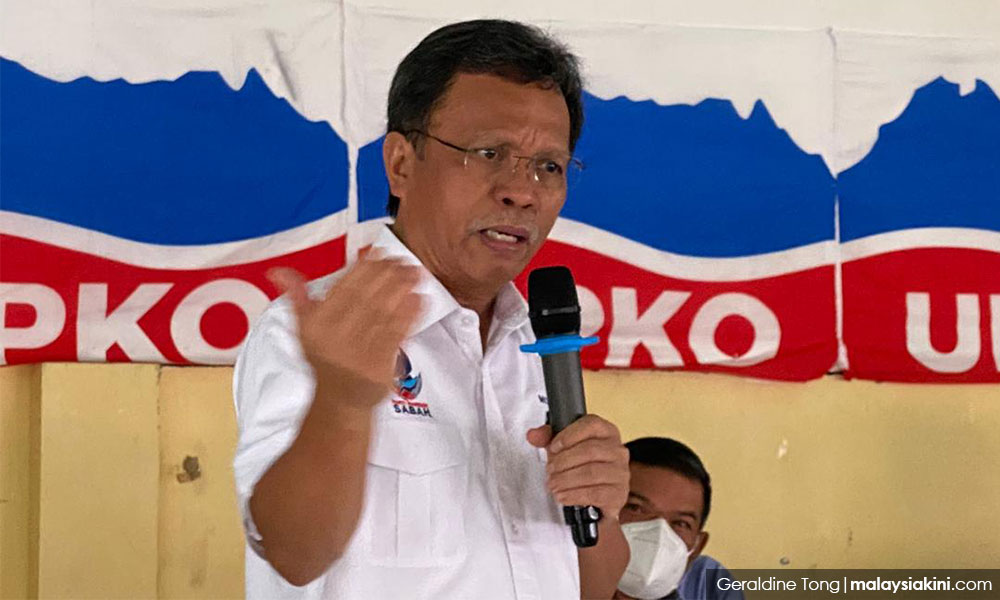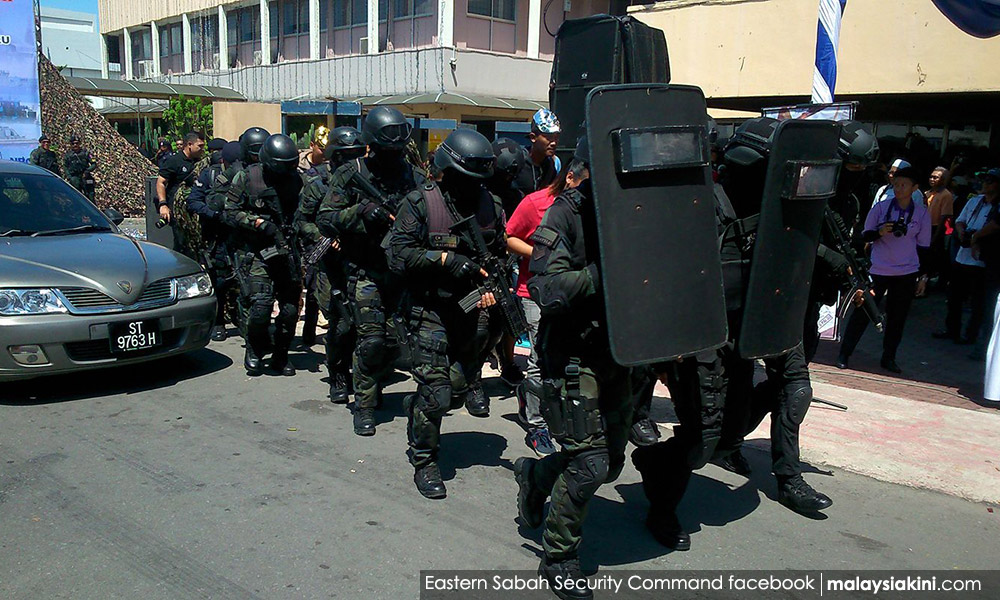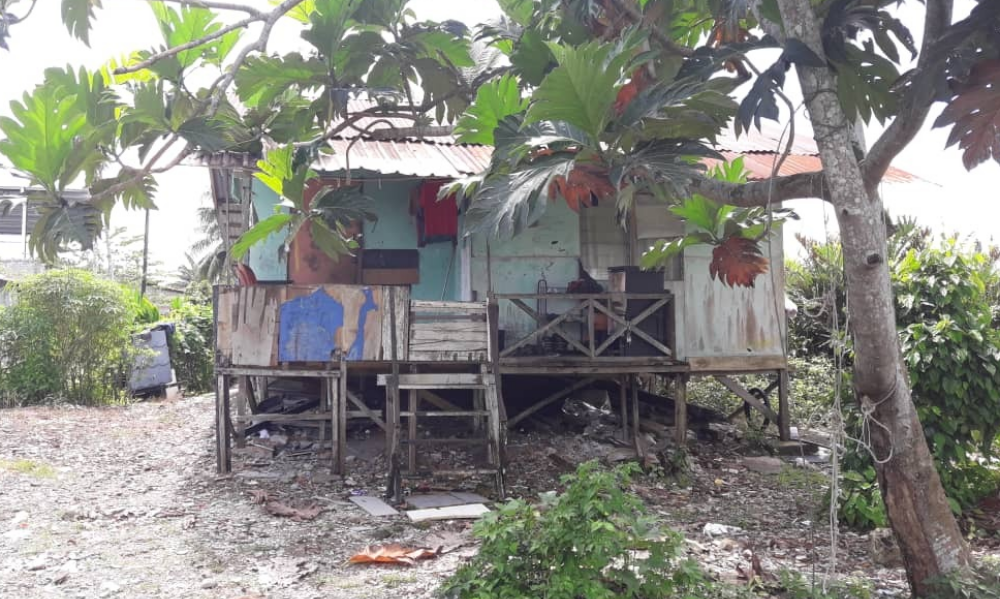
How many politicians does it take to change a light bulb in Sabah? The answer is four. One to 'mandor' (supervise) the three deputies. The first deputy's job is to bark orders, the second deputy takes charge of the workers who keep jumping from one employer to another and the third deputy subcontracts the job to a rival company.
Sabah is a land of contradictions. Despite its immense wealth from petroleum deposits, liquified natural gas (LNG), timber, oil palm and minerals, it remains the least developed and poorest country in Malaysia. The next poorest state is Kelantan, which has no appreciable petroleum or LNG reserves.
We know that the oil money for Sabah has gone to build the infrastructure of the semenanjung (peninsula), so why won't Sabah politicians seize back control? Why do they allow Putrajaya to ride roughshod over them?
Just before an election, state or otherwise, Putrajaya will make the usual reconciliatory gestures about honouring the terms of the Malaysia Agreement 1963 (MA63), and talk about increasing the five percent oil royalty to Sabah. After the elections, the proposed negotiations die a premature death, only to be resuscitated at the next election.
The former Sabah chief minister, Shafie Apdal, alleged that a good percentage of Sabah state land had been annexed by another former chief minister to distribute to his family members and cronies. Vast acreages, which the politicians have not managed to acquire on a long-term lease, are owned by plantation groups or timber barons.

For how long have former chief ministers and their political friends carved-up the country and milked the state dry? When will the locals start recognising the harm that self-serving politicians do and stop re-electing them? Some local politicians probably wield more power and have more opportunities to get-rich-quick than some Putrajaya ministers.
Sabah has tremendous potential to develop, but its growth is stunted because of the lack of infrastructure. The landmass of Sabah is around 74,000 square kilometres and is over half the size of the landmass of Peninsular Malaysia, which is 132,265sq-km. Sabah's population is around 3.5 million people, whilst that of the semenanjung is about 26 million.
For every 100 barrels of crude oil produced, 95 go to Putrajaya, whilst only five barrels are used to develop Sabah. If the percentages were reversed, and Sabah were to retain 95 percent of the oil royalty, just think of the roads, bridges, social housing, schools, hospitals, piped water, electricity and other communication networks, including telecommunication, that could connect the rural communities.
Sabah is a haven for tourists, but we occasionally hear about kidnappings and abductions by militants from the southern Philippines, which creates fear and panic in Sabah.
In 2016, both the erstwhile home minister Zahid Hamidi and the then IGP, Khalid Abu Bakar, issued conflicting statements about the ransom money paid to the Abu Sayyah terrorist group, which kidnapped four Sarawakians from Sabah waters.

The abduction of Sabahans and skirmishes along the eastern seaboard of Sabah are common and were first documented in the 19th Century. Although the Eastern Sabah Security Command (Esscom) was formed to make Sabahans feel safer, we wonder whether Esscom is effective.
Where did the billions of ringgit that have been poured into Esscom go? With sophisticated machinery and surveillance techniques on land, sea and air, reinforced by informants and intelligence gathering, Sabahans should feel safe.
Instead, many claim that they have no peace of mind. Their livelihood is under threat and their tourism industry is suffering.
The lack of safety, the shortage of a skilled labour force and bad transport networks discourage foreign investment into the state.
The rich enrol their children in international schools and they remain in Kuala Lumpur or overseas to work. Friends from Sabah complain that many local schools are in poor repair. Rural communities often send their children to board and many fear the allegations of forced conversions. So, how did Muhyiddin Yassin improve education for Sabah children, when he was the minister of education?
There is much wealth to be made in Sabah, but job opportunities remain low and wages are depressed. Many ordinary Sabahans travel to Singapore or the semenanjung to find work.
So, do you blame Putrajaya or the local government for failing to stimulate growth and investment in Sabah? Why aren't there more job opportunities, and specialist or vocational training for the youth of Sabah?

Those with money invest in property in Sabah, especially in and around Kota Kinabalu, which is already attracting many European retirees and expatriates. One local said, "The Kota Kinabalu high-end property market is dominated by foreigners and assorted political cronies. How can locals afford expensive property, when we can't even afford basic housing?"
Sabah has some of the most fertile soil in Southeast Asia and yet, people cannot afford food because transport costs are high. At the foot of the Kinabalu mountain range, tourists will be amazed by the local produce.
If only the fruit and vegetables could be marketed and shipped to semenanjung, we could promote local produce and increase our food security, but shipping and transportation costs are prohibitive. Why is this, when food can be shipped to Europe very cheaply from South America and Africa?
What will happen, now that the worldwide demand for crude oil is low and the price of oil, has dropped? With the Malaysian economy in trouble, Putrajaya will be even more reluctant to increase the five percent oil royalty to Sabah.
Sabah remains poor because of its weak and corrupt leadership.
MARIAM MOKHTAR is a defender of the truth, the admiral-general of the Green Bean Army and president of the Perak Liberation Organisation (PLO). Blog, Twitter. - Mkini
The views expressed here are those of the author/contributor and do not necessarily represent the views of MMKtT.


No comments:
Post a Comment
Note: Only a member of this blog may post a comment.